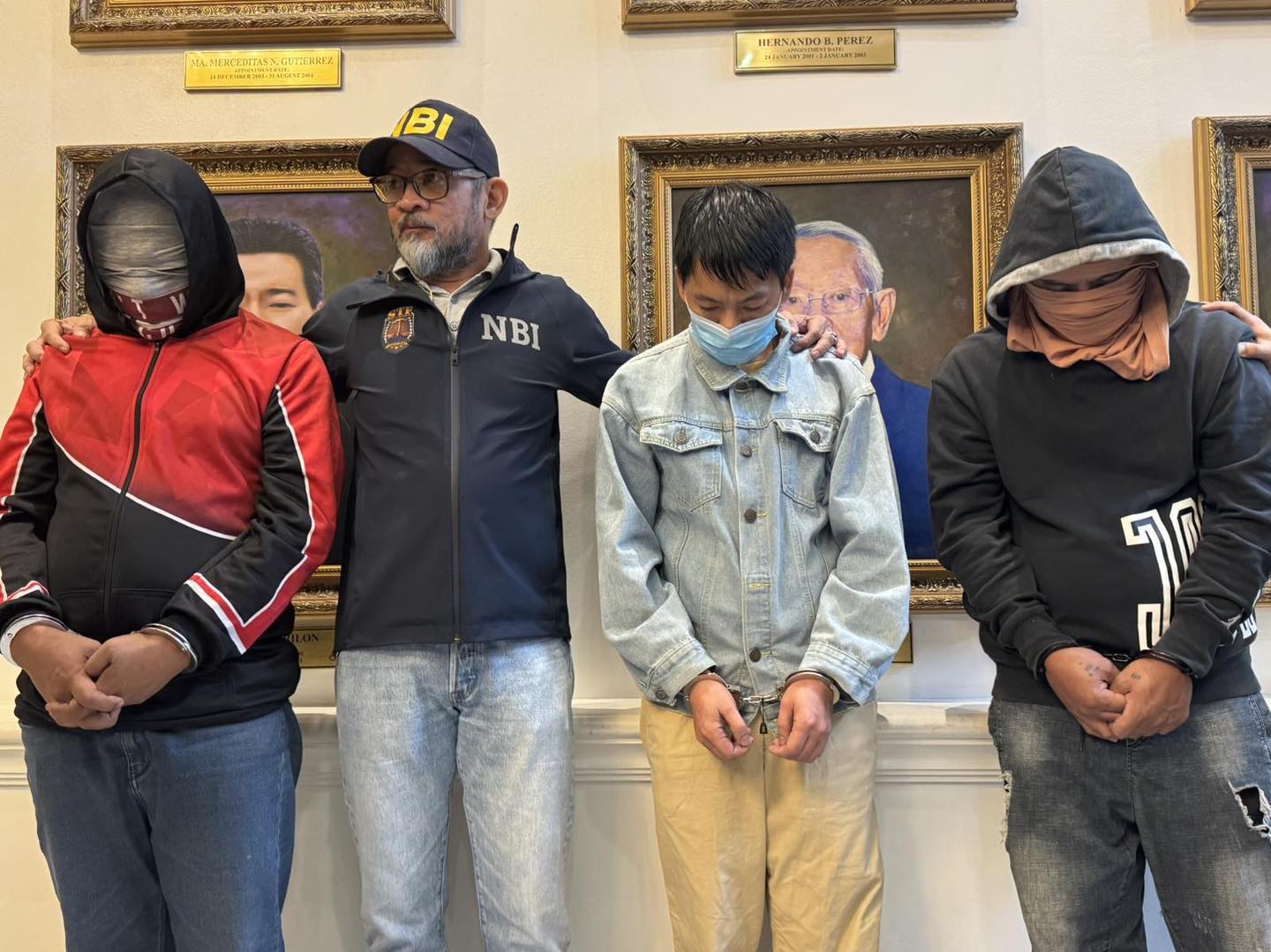Congress urged to hasten passage of bills vs espionage, foreign interference

The National Security Council (NSC) called on lawmakers Tuesday, Jan. 21, to expedite the passage of crucial laws aimed at enhancing the country’s defenses against espionage, foreign interference and malign influence activities.
National Security Adviser (NSA) Eduardo Año made the appeal in light of the arrest of a suspected Chinese spy and his two Filipino cohorts during an operation by the National Bureau of Investigation (NBI) in coordination with the Armed Forces of the Philippines (AFP) in Makati City last Jan. 17.
The Department of Justice (DOJ), NBI, and AFP presented the arrested suspects, Deng Yuanqing, Ronnel Jojo Balundo Besa, and Jayson Amado Fernandez in a press conference on Monday.
The Chinese suspect was accused of actively engaging in sophisticated surveillance, espionage, and intelligence-gathering activities in the country. On the other hand, authorities said the Filipino cohorts were aiding the Chinese suspect.
“In light of these developments, we urge Congress to prioritize the passage of the amendments to the Espionage Act as well as the Countering Foreign Interference and Malign Influence bill,” Año said.
The arrest of former Bamban, Tarlac mayor Alice Guo last year due to her alleged involvement in illegal Philippine Offshore Gaming Operator (Pogo) activities raised fears that spies or sleeper agents have already infiltrated the country.
It remains to be seen whether the recent discovery of submersible drones in the country's waters could also be related to the alleged espionage activities.
“Whether in the political arena, in economics, in information, or the military sphere, information is very vital. If we notice what happened just recently, the Chinese national may be an isolated case. But if you look at the bigger picture, last month we received the submersible glider, the drone, from fisherfolk, it’s the fifth that we have in our possession undergoing forensics," Philippine Navy spokesperson for the West Philippine Sea (WPS), Rear Adm. Roy Vincent Trinidad said.
"If we step, take two steps further backward, a local chief executive with a dubious character and background was uncovered. Foreign nationals were arrested with fake government IDs, foreign nationals with birth certificates,” he continued.
“So if we look at the entire expanse of the country, covering the different instruments of national power, and start connecting the dots, there seems now to be a deliberate and calculated move to map out the country by a foreign power,” he added.
In September last year, Department of National Defense (DND) Sec. Gilberto Teodoro Jr. also urged the Congress to amend the country's espionage law “to make it effective even during times of peace.”
Commonwealth Act No. 616 punishes espionage and other offenses against national security but only during times of war.
“Strengthening our legal framework is essential to effectively address evolving security threats and to ensure that those who seek to compromise our national security will face the full force of the law,” Año stated.
“The recent apprehensions highlight the need for continuous vigilance, strengthened coordination among government agencies, and proactive measures to fortify our national security framework,” he added.
National security concern
The AFP said the arrest of the suspected Chinese spy is a national security concern.
“We consider this as an issue of concern considering that critical infrastructures and of course even our military camps and our PNP [Philippine National Police] camps are part of this. So these are national security concerns and we're really looking intently [into] this,” AFP spokesperson Col. Francel Margareth Padilla said.
According to the AFP, the Chinese suspect and his Filipino cohorts were frequenting critical infrastructure to gather intelligence information such as details of the topography and terrain of the target places.
“Beginning December of 2024, the said Chinese national directed trips for over a month in the Luzon mainline and they utilized their equipment to map and survey critical infrastructures and strategic areas to include military installations, ports, malls, communications grids, energy grid, and major seaports and airports covering major routes from the northernmost point of Luzon down to the Bicol region,” Padilla said.
“Our intelligence operatives also noted that this Chinese national achieved this through a network of financiers, technical experts, which are also Chinese nationals, and support personnel, accordingly,” she added.
The data were allegedly transmitted to an outside source using a piece of equipment capable of producing coordinates.
Among the places the group visited included the AFP signal frequency repeater in Batangas; National Grid Corporation of the Philippines (NGCP) sub-station in Batangas combined power plant; Batangas navigational lighthouses; Petro-chemical complex Malampaya; Coast Guard District Southern Luzon; combined cycle powerplant Batangas City; Kalayaan power plant in Laguna; NGCP Lumban sub-station; and 201st Infantry Brigade Laguna.
After harvesting data in Luzon, the group is allegedly set to visit other target areas in Visayas and Mindanao.
The Chinese suspect, according to the NBI, is a graduate of the People’s Liberation Army University of Science and Technology, which is controlled and operated by the Chinese military.
The AFP added that he has been in the Philippines for “around over 10 years,” is married to a Filipina, and has established “businesses” in the country.
“The same businesses are also being used as fronts to receive large amounts of funds to enable his illicit activities,” Padilla shared.
Nonetheless, Año said the national government remains committed to counter espionage and other malign operations that pose a threat to the country’s critical infrastructure, defense facilities, and national security.
“We reaffirm our commitment to working closely with all instrumentalities of government and stakeholders to strengthen our national security and protect the welfare of the Filipino people,” he said.
“We call on the public to remain vigilant and report any suspicious activities that may compromise our security to the Philippine National Police and other security and intelligence agencies,” he added.